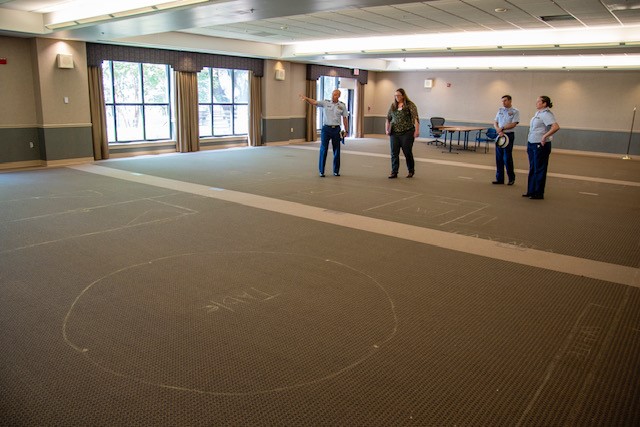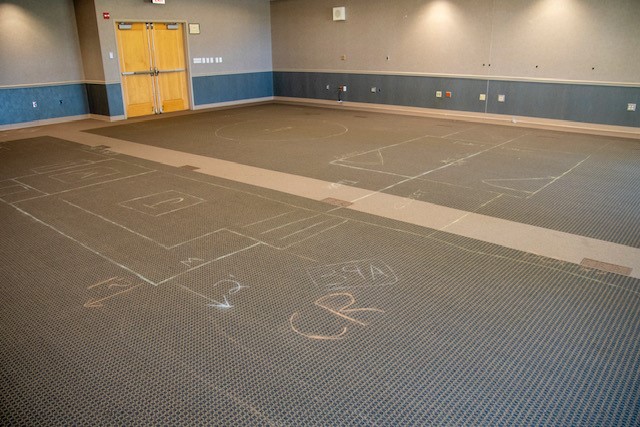From yesterday’s article , we know the Office of the Chief Prosecutor prosecutes serious, victim-centered offenses. And we know that moving the decision to prosecute covered offenses away from the chain of command is a big deal – “a sea change in our military justice system,” according to RDML Rick Batson, the Judge Advocate General (TJAG) of the Coast Guard.
“Establishing the OCP reinforces the Service’s commitment to accountability by having experienced military prosecutors handle victim-centric crimes,” said VADM Pete Gautier, the Campaign Coordinator for Strengthening Service Culture. “This is a big step in our ongoing efforts to ensure our members adhere to our Core Values, and we would like them to understand what this new system means.”
The official name for these prosecutors are Special Trial Counsel, or STCs. STCs are qualified military lawyers who:
- have taken an oath,
- graduated Naval Justice School’s 10-week Basic Lawyer Course,
- graduated Naval Justice School’s 2-week Military Justice Orientation Course,
- completed the Sea Services Special Trial Counsel Certification Course and other advanced litigation courses,
- have a minimum of two years in a full-time military justice position (or 11 months in a civilian equivalent position) with specific litigation experience,
- at higher ranks, STCs are required to have four or six years of full-time military justice experience, along with having litigated a significant number of courts-martial, and
- are certified by the Coast Guard’s Judge Advocate General.
So far, the OCP has already qualified and nominated seven STCs who were certified, with more in the pipeline. Qualified military lawyers working toward the STC designation are called Trial Counsels, or TCs, until they achieved the required amount of experience to be certified as an STC by the Judge Advocate General.
The OCP also has an ace on staff. Ms. Jen White is a career prosecutor with experience in the Army and Navy. She offers subject matter expert guidance to the STCs/TCs and coordinates the OCP’s professional development training program.
Leading the entire team is the new Chief Prosecutor, RDML Dwyer. To accept assignment as the Chief Prosecutor, then-Capt. Dwyer had to agree to retire upon completion of his OCP tour. This caveat to orders demonstrates the judicial independence of OCP in that he is not worried about potential impacts to his career – he must retire anyway.
Now, let’s visit Charleston, S.C., to see where the team works. We’ll also share a sneak peek into the OCP’s future.
Visiting the OCP
Once through the security screenings to get on base and then into the State Department facility, there’s a long sterile hallway leading to the OCP’s office space. Upon entering, you are immediately in a courtroom.

Every OCP visitor will pass through this training courtroom on their way to meet with OCP staff, making it a stark reminder of the team’s mission.
There’s a lectern facing the judge’s table. On your right, is the prosecution’s desk – the defense’s desk is on your left. There’s a witness stand opposite the jury box with twelve chairs.
Here, STCs and TCs practice and hone their craft. They stand behind the lectern facing the judge’s bench and practice delivering their arguments. Like in a real court setting, they push through distractions of people coming and going.
“Reps and sets in the courtroom is one of, if not the best way for litigators to gain experience,” said Lt. Cmdr. Pete Link, one of the STCs. “Having the mock courtroom steps away from where I work is invaluable, and it will only help to make each attorney that works here better and more comfortable in an actual courtroom.”
OCP’s litigators will also benefit from professional development opportunities at the nearby FLETC (Federal Law Enforcement Training Center) and the Department of Justice’s training facility. With the Coast Guard’s growing operational footprint in Charleston, there will be ample opportunities to keep the OCP staff connected with the field.
Sneak Peek into New Courtroom

OCP is building a 7,100 square-foot courtroom with adjacent space for judge’s chambers, member room (jury room), and office space for the prosecution team, defense team, Victims’ Counsel, and witnesses. While practitioners will still be trained and ready to effectively litigate in a variety of environments, from austere to highly sophisticated, hearings and trials in this new smart facility enables lawyers to selectively digitally display evidence to the jurors, judge, witnesses, and spectators in the gallery. It’s one more way OCP is changing the military justice process.

Capt. Ben Gullo, Deputy Chief Prosecutor, provided a tour of the spaces that have been chalk-lined for the major renovation. When designing the new space, Capt. Gullo drew on his experience as a city prosecutor in Brooklyn, New York, a Department of Justice prosecutor, and as a judge advocate in the U.S. Army. His courtroom experiences are key to informing the design of the new courtroom, as he understands the needs of all the participants involved in a court-martial. Capt. Gullo also ensured that other stakeholders were able to provide input on the courtroom design – Coast Guard judges, Coast Guard and Navy Defense, Victim’s Counsel, the U.S. Marshalls, and many other subject matter experts.

“Nobody wants a witness – or, worse, a victim - accidentally bumping into the accused in the hallways and being re-traumatized,” said Capt. Gullo. “We’re building out the space properly to permit orderly control of all involved, while giving all of the parties to a court-martial adequate spaces to work in when they’re not in session.
Future Plans
By the end of 2026, OCP plans to further increase the number of personnel. OCP will maintain an office in Alameda to reduce time-zone conflicts when talking with victims, Victims’ Counsel, witnesses, investigators, and commands on the west coast—and where appropriate, to support law enforcement in real-time by traveling to crime scenes.
Long-term plans also include adding a forensic psychologist, civilian court reporters, specialized paralegals with victim-witness training, and Maritime Enforcement Specialists (MEs) to ensure courtroom security during highly emotional and contentious trials. Just last month OCP welcomed a CGIS liaison—who will work alongside STCs in their efforts to identify critical witnesses and gather crucial evidence to support their investigations and prosecutions.
Every step forward helps ensure the Coast Guard is ensuring fair and impartial justice for victim-centric crimes. As Capt. Gullo puts it: “We are raising the level of professionalism on par with how our civilian federal and state counterparts practice criminal law.”
-USCG-
In the News: